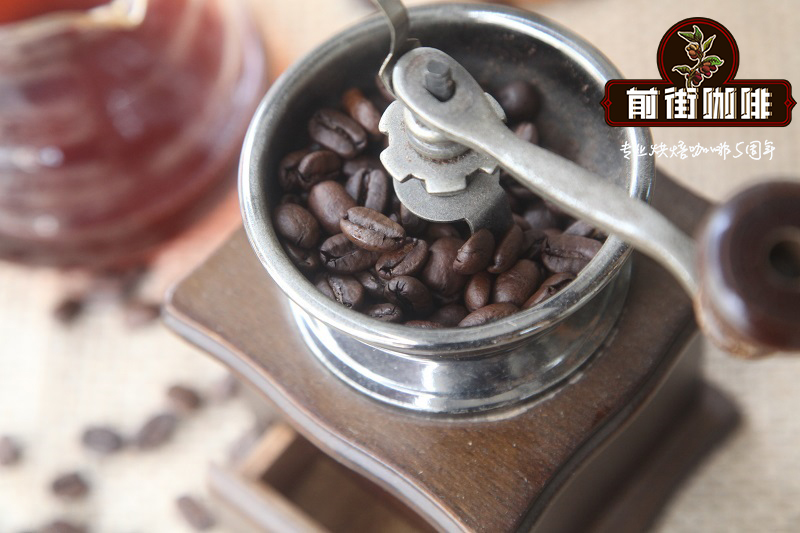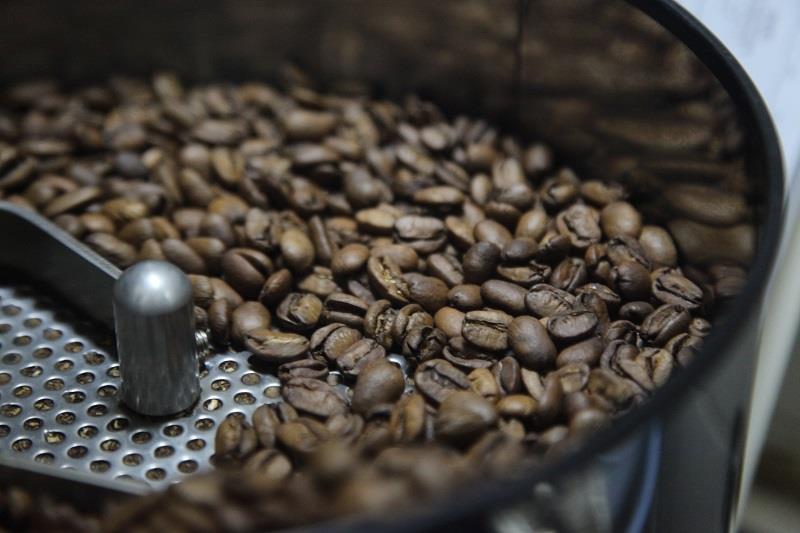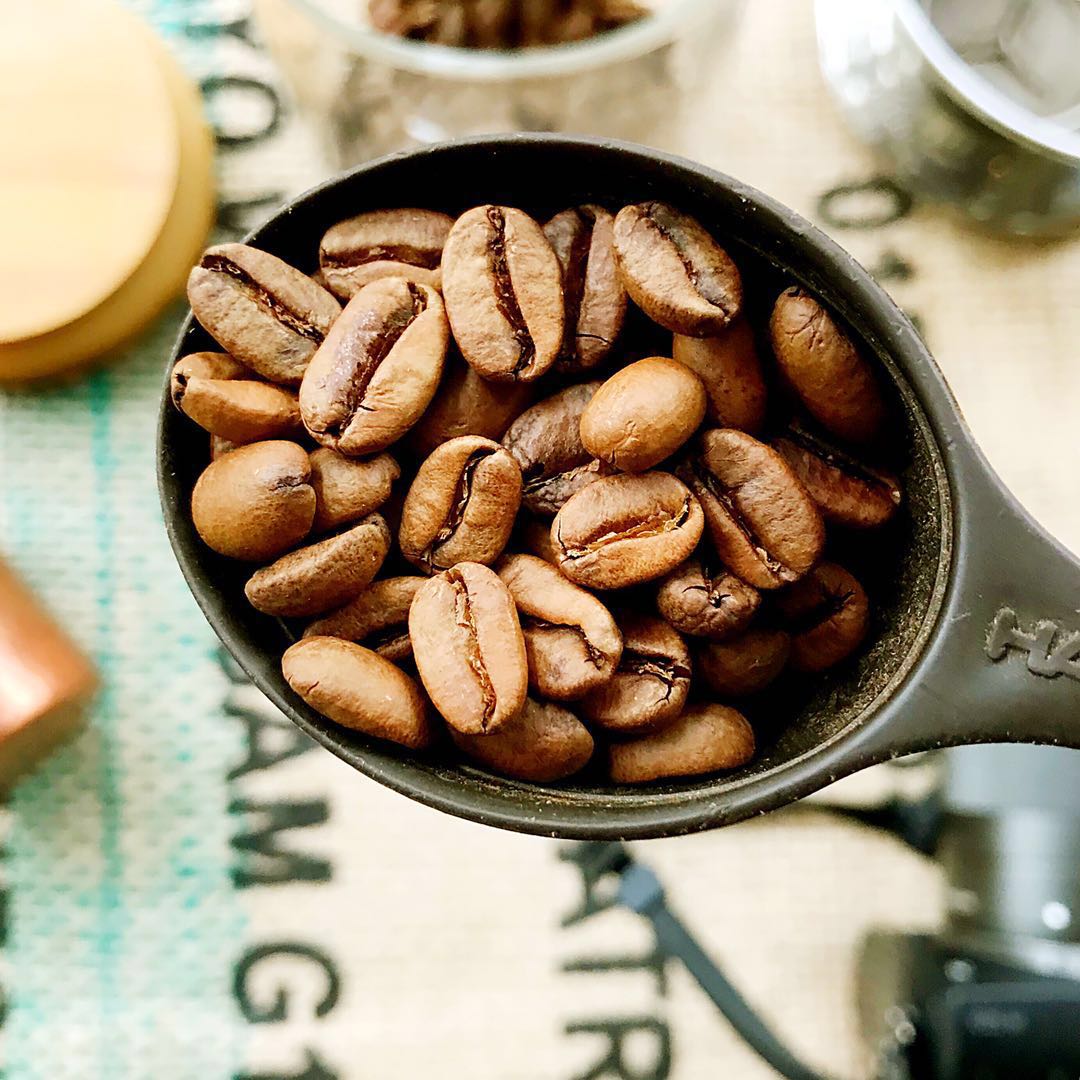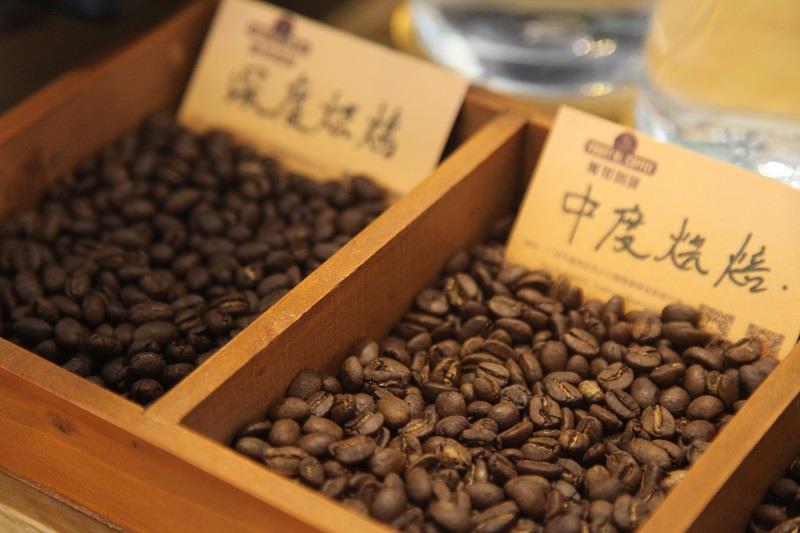What happens after the coffee beans are roasted? See what the scientists say!
Professional coffee knowledge exchange more coffee bean information please follow the coffee workshop (Wechat official account cafe_style)
What happens when the coffee beans are roasted? Instead of hearsay, let's see what the scientists say.

Recently, a guest asked us about the situation in which the coffee beans turned sour for some time after they were roasted and bought back. We have not recommended that coffee beans be sealed and stored in glass jars, mainly considering that the general glass jars are too large and have too many gaps, and that the air in the cans may contain too much water. After opening the cans a few days later, the acidity of the coffee becomes higher and the aroma becomes lighter; it is better to use the original Kraft paper bag with one-way exhaust valve for storage.
Some people think that the jar has no vent to let CO2 out of the jar and let the coffee beans suck CO2 back, but the real reason is found in this book (look for it, too).

Use jars to preserve beans, with or without one-way vents, be sure to pay attention to the problem of headspace (head space). It is best to fill them up. You would rather have a [Boo] when you open the can than a sour smell when you open it. This may also explain why it is easier to keep beans fresh with one-way breathable bags than canned ones. (recommend the book "the Science of Coffee". The following is from Dan Xingbo [Science of Coffee] page 185: 188)

Menstrual deterioration after baking
Even the originally delicious coffee beans, after a period of time, will no longer expand, the flavor will become worse and worse, we usually say that this is "the coffee becomes bad because of oxidation". However, the deterioration of baked beans can be divided into three types, strictly speaking, only one of which is related to oxidation (rancidity). The other two are more important than rancidity.

Change the taste
After the chlorogenic acid lactone and quinic acid lactone formed during baking react with water molecules, it will be easily decomposed by adding water and restored to chlorogenic acid and quinic acid, so that the pH value decreases and becomes acidic. Although this is the reaction that occurs when there is more water, because the process is so fast that if the coffee is placed on the incubator for only a few tens of minutes, the change can be detected as long as the roasted beans are left at room temperature for 1-2 days after moisture absorption.
Aroma and gas loss
Shortly after baking, the carbonic acid gas will disappear from the coffee beans with the aroma components, and the more volatile aroma components will disappear faster, making the coffee which originally has a slender aroma lose its existing characteristics and become ordinary. In addition, coffee beans without gas are not easy to expand even if they are poured into hot water, because the tissue of beans becomes "difficult to open", resulting in poor extraction efficiency of ingredients. Under the condition of too little moisture, the loss of aroma and gas is the fastest deterioration, and the change can be detected in the normal temperature environment of 10 to 15 days. This is why their own bakeries, which attach great importance to quality, tell consumers that "coffee beans are the most delicious within two weeks after roasting."

Rancidity
When the fatty acids that form the oil are oxidized with air, fatty acids with higher unsaturation (the proportion of multiple bonds in the molecule) are formed. after oxidation, these fatty acids are decomposed into short-chain fatty acids with different carbon elements, resulting in the smell of oil (rancidity, decay) and the reduction of pH. Although this is the deterioration caused by oxidation, the speed is unexpectedly slow. It is said that it takes at least 7-8 weeks to make a difference at room temperature.

Preservation methods of baked beans
After sorting out the causes of deterioration, it is natural to find a solution:
1) avoid moisture absorption
2) avoid gas discharge
3) avoid oxidation
It's better to keep the coffee delicious for a long time.
If the coffee beans can be kept in an airtight state (blocking the entry and exit of gas), all the above conditions can be met. Since rancidity and rancidity are easy to occur in high temperature, putting coffee beans in a low temperature environment is not only quite effective, but also vacuum packaging to block oxygen or the use of deoxidizer is of great help to shade and prevent oxidation.

However, exactly how to preserve coffee beans, # actually depends on "how to use these coffee beans". However, airtight bags have also ruptured due to the production of carbonic acid gas, so it will cause inconvenience to circulate in supermarkets, stores and other stores with this kind of packaging. Vacuum packaging, or the use of one-way exhaust valve structure (packaging that can discharge carbonic acid gas) can solve the unique problems in logistics, and at the same time, it is a technology that can stably maintain the quality for several months. In addition, recently, it can be seen that the method of filling coffee beans into the bottle immediately after baking can make the bottle show high pressure, slow down the gas leakage, and enable us to enjoy the coffee with excellent aroma for a long time. .
Important Notice :
前街咖啡 FrontStreet Coffee has moved to new addredd:
FrontStreet Coffee Address: 315,Donghua East Road,GuangZhou
Tel:020 38364473
- Prev

Comparison of coffee flavor between Yejia Xuefei and other major producing areas
Taste: when you buy coffee beans, you will see descriptions of different coffee flavors, using adjectives such as tropical fruit, caramel, nuts, cocoa and so on. These descriptions of coffee flavor are all derived from the coffee flavor wheel of SCAA (American Fine Coffee Association). [characteristics of various coffee beans] ◎ Mantenin southern Sumatra, Indonesia
- Next

Panama butterfly
Panama is a Central American country bordering Costa Rica to the west and Colombia to the east. Anyone who knows anything about single-serve coffee should know that Panama Coffee is famous in the coffee world for its Geisha (the name of Guixia). It can be said that it is a country that excels in coffee and produces high quality coffee. Panama Coffee is known for the summers of Emerald Manor, and
Related
- Beginners will see the "Coffee pull flower" guide!
- What is the difference between ice blog purified milk and ordinary milk coffee?
- Why is the Philippines the largest producer of crops in Liberia?
- For coffee extraction, should the fine powder be retained?
- How does extracted espresso fill pressed powder? How much strength does it take to press the powder?
- How to make jasmine cold extract coffee? Is the jasmine + latte good?
- Will this little toy really make the coffee taste better? How does Lily Drip affect coffee extraction?
- Will the action of slapping the filter cup also affect coffee extraction?
- What's the difference between powder-to-water ratio and powder-to-liquid ratio?
- What is the Ethiopian local species? What does it have to do with Heirloom native species?

